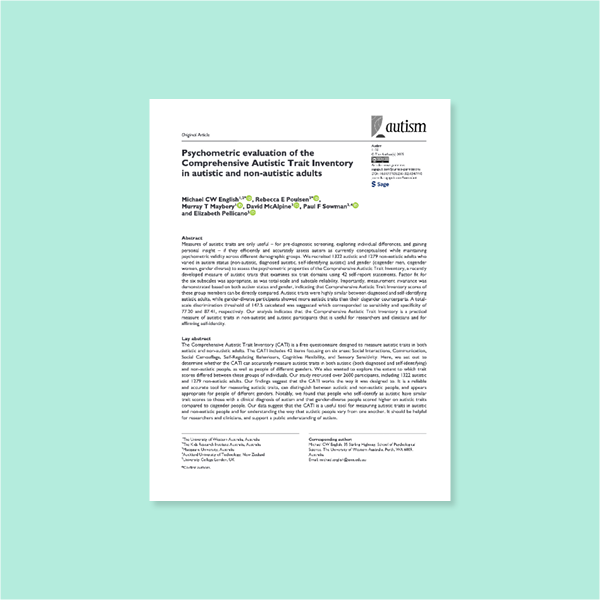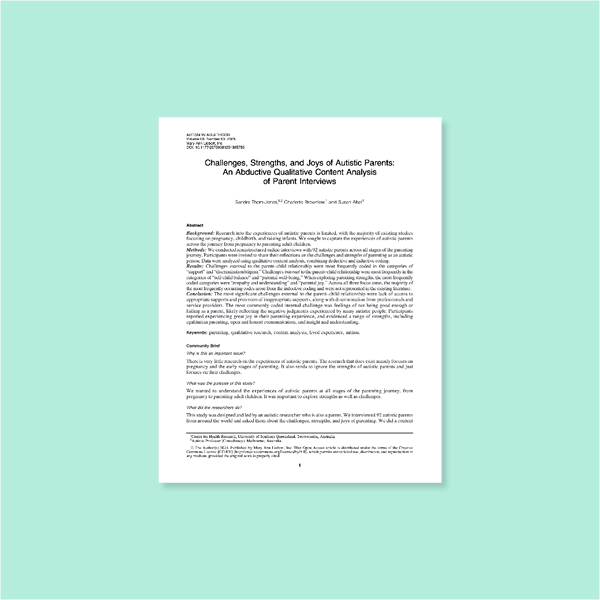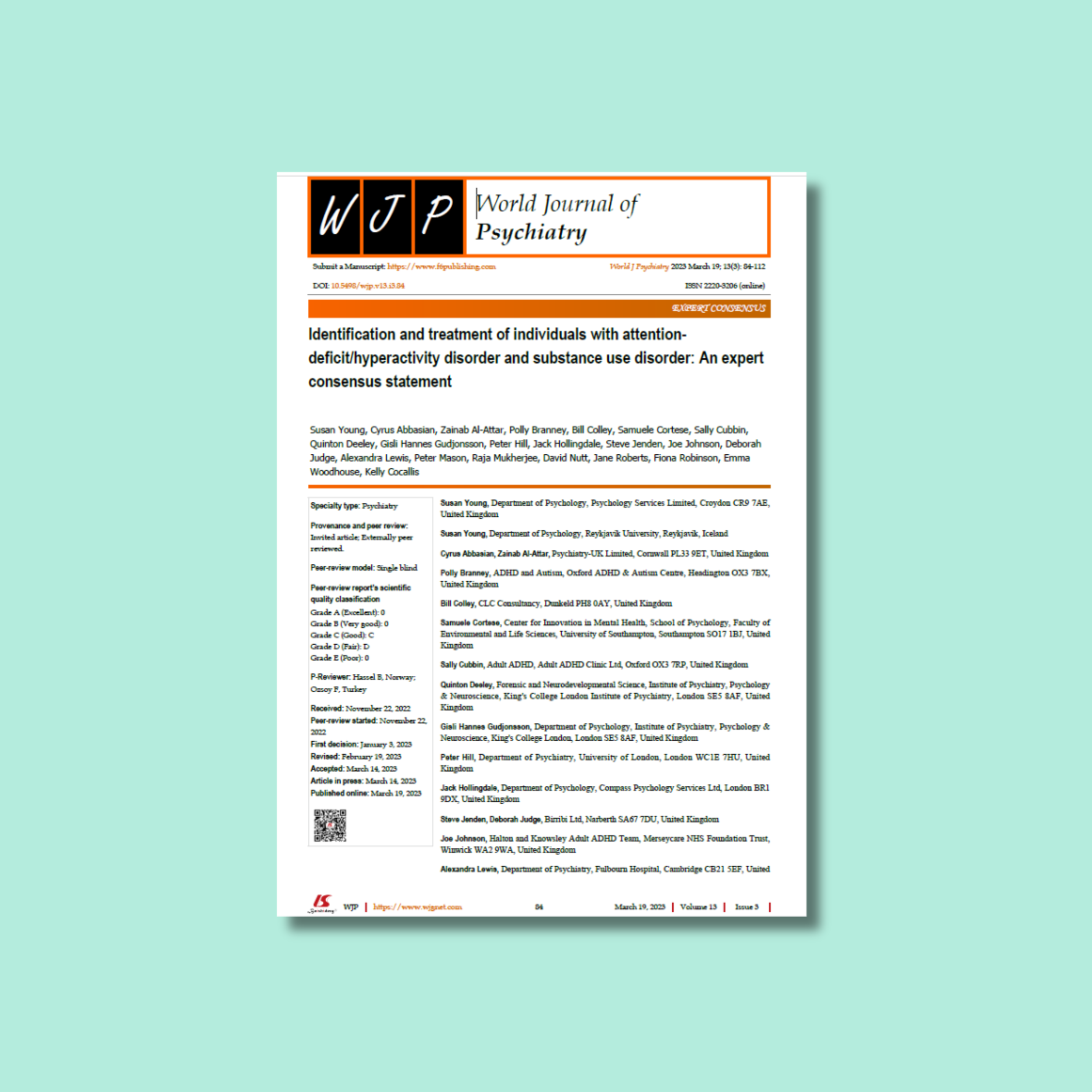 Image 1 of 1
Image 1 of 1


Autistic Self-Advocacy and the Neurodiversity Movement: Implications for Autism Early Intervention Research and Practice.
Leadbitter, Buckle, Ellis and Dekker (2021)
The rise of autistic self-advocacy and the neurodiversity movement has sparked important debates in autism research, especially around ethics and goals of intervention. This paper argues that autism interventions should shift away from trying to make autistic people appear "normal" and instead focus on supporting their unique development, well-being, and priorities, in collaboration with autistic individuals.
Leadbitter, Buckle, Ellis and Dekker (2021)
The rise of autistic self-advocacy and the neurodiversity movement has sparked important debates in autism research, especially around ethics and goals of intervention. This paper argues that autism interventions should shift away from trying to make autistic people appear "normal" and instead focus on supporting their unique development, well-being, and priorities, in collaboration with autistic individuals.






